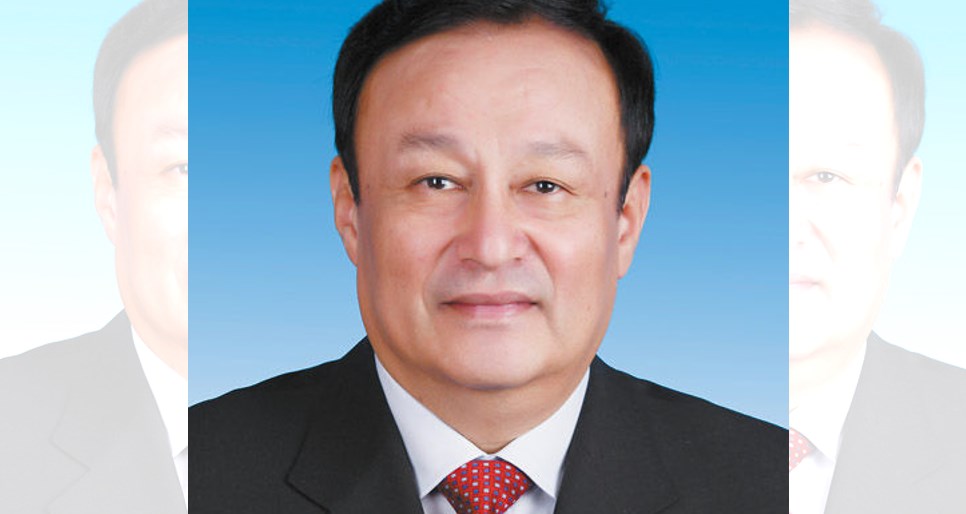The annual meeting for Xinjiang delegates at China’s top legislature took place amid heightened security on Tuesday, with some journalists denied access and physically confronted by staffers.
The National People’s Congress and the Chinese People’s Political Consultative Conference are meeting in Beijing for the annual “two sessions,” which will continue until Friday.
After the Xinjiang delegation meeting, security cleared journalists from the area pushing them further away. One tried to take my pass away. 🎥: @yongxiong2008 pic.twitter.com/bfSc25U6rL
— Pak Yiu (@pakwayne) March 12, 2019
The meeting of Xinjiang delegates – which included top official Chen Quanguo and local government head Shohrat Zakir – drew international media attention over the detention of ethnic Uighurs in “re-education camps.”
At the meeting, which was open to foreign media, Zakir said that the camps were “vocational training centres” and would be phased out “if, one day, society no longer needs them.”
“Some people say that there are ‘concentration camps’ in Xinjiang… those are ridiculous lies,” he said, claiming that the those detained enjoy human rights.
“Actually, our [vocational] centres are boarding schools, and the students have free food and accommodation, learning language, law and skills… Students can go home regularly and can ask for days off. At the same time, we especially make sure that students have the right to use their own language and writing in daily life.”
As for some estimates saying there may be around a million people detained, Zakir said the number was “far lower” but did not give specifics.

In 2014, President Xi Jinping ordered a “strike hard” government campaign to tackle unrest across the region, following riots among Uighur groups in 2009 which mostly targeted the Han Chinese majority. According to Human Rights Watch, levels of repression have increased dramatically since Chen was transferred to the region in 2016.
Explainer: Who are the Uighurs and why is the Chinese government detaining them?
Those targeted in the crackdown include Uighurs, Kazakhs and Turkic Xinjiang residents.
Media escorted away
i-Cable News reported that, unlike at other meetings, all Xinjiang delegates arrived at the meeting an hour early, meaning journalists were unable to pose questions to them on their way in. Around 150 reporters were crammed into the back of a smaller-than-usual meeting room.
While reporters are typically allowed to wait outside the meeting venue to “doorstep” exiting delegates, on Tuesday security guards cleared out all journalists and sealed off the northern entrance.
RTHK recorded video footage of security guards edging reporters away, which ended with a guard trying to seize the press pass from an AFP video journalist.
【驅趕記者】新疆人大代表團下午開放予傳媒採訪,提問環節結束後,人民大會堂工作人員要求在場記者離開,不准等候採訪。#香港電台#採訪#人大#北京
Posted by 香港電台視像新聞 RTHK VNEWS on Tuesday, 12 March 2019
“What are you filming? I’m telling you to leave, what are you filming?” the guard was heard saying. The guards then drew a large curtain over a doorway.
On Saturday, RTHK reporters managed to speak to Nuerlan Abudumanjin, chairman of the Xinjiang political consultative conference, while he was leaving a meeting.
Abudumanjin claimed that media reports about re-education camps were false, and that Xinjiang has not had incidents of violent conflict for over two years.
